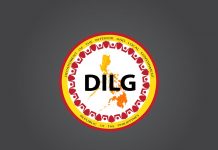Automation is the way to go for local government units (LGUs) that want to further speed up their business permits and licensing system (BPLS), according to the Department of the Interior and Local Government (DILG).
DILG Officer-in-Charge Catalino S. Cuy says the DILG is urging LGUs to go for automation in support of the ease of doing business at the local level in order to comply with President Duterte’s directive to streamline frontline services and the licensing and permit system in the entire government bureaucracy.
“Early on, the President has made it clear that government services should be fast and efficient. He said the public should not be inconvenienced or burdened by long queues, many signatories and lengthy processes in LGUs. This is why we at the DILG are working with groups like the NABPLO to enhance the BPLS in LGUs,” says Cuy.
On the other hand, DILG Undersecretary Austere A. Panadero says that LGUs should automate their BPLS now that business is booming as a result of renewed confidence by investors in the government or be left behind in the country’s economy.
“We now live in a fast-paced economy. LGUs should therefore be able to level up and make their localities conducive to business and investment. One way to do this is by automating their systems and processes and finding innovative ways on how to further speed up the issuance and renewal of their business permits and licenses,” says Panadero.
The DILG Undersecretary was guest speaker during the 1st National Convention of the National Association of Business Permits and Licensing Officers (BPLOs) in Blue Leaf Filipinas, Paranaque City.
In the road towards automation, Panadero cites the important role of BPLOs in the preparation of an information strategic plan to reduce requirements and processing time, remove redundancies and simplify the systems.
“The BPLOs are crucial in providing quality and timely service to investors to help ease the setting up and renewal of businesses that will redound to more jobs and opportunities in their localities,” he says.
“Kung ang maliliit na mamumuhunan ang bumubuhay sa ating ekonomiya, huwag na natin silang pahirapan pa. Wag ng hingan ng padulas. Sapagkat pag nagawa nating maging madali ang pagtatayo ng mga negosyo, mas malaki ang maiaambag ninyo sa pag-unlad ng inyong bayan,” he adds.
He says the DILG will partner with the NABPLO headed by its President, Atty. Melanie Malaya, in pursuing more programs next year including a proposal to amend the LG Code to create a BPLO office as a regular LGU entity protected by the Civil Service Commission.
Other DILG efforts are the rationalization of local fees and charges by enforcing the legal basis in fixing the amount and benchmarking them; and the harmonization of business categorization under the Local Government Code with that of the Philippines Standard Industry Classification (PSIC).
Cuy says the DILG is also working on the integration of barangay clearance under the BPLS process in cities and municipalities; and the streamlining of building permit process and harmonizing them with the standards under the National Building Code and Fire Code.
Currently, the Philippines is at the 133th in World Ranking in Ease of Doing Business, only one notch higher than Cambodia but way lower than all its ASEAN neigbors.
On the other hand, Guillermo Luz, Co-Chair of the National Competitive Council (NCC), expresses the urgent need for the government to automate its systems and processes to improve the country’s global competitiveness standing.
Luz says the Philippines is competing with its ASEAN neigbors in all aspects of investments, trade, jobs, tourists, human resource, including image or brand.
He proposes the use of inexpensive modern technology that the NCC will be setting up by January 2018 such as web links like business.gov.ph; eGov apps, pay-per-use applications; and speedy connectivity to improve LGU competitiveness.



